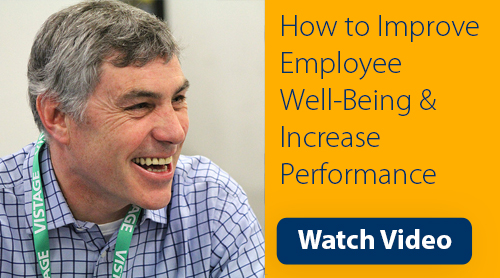
Goals, benchmarks and targets. We’re all familiar with them and almost certainly use them in our professional and personal life to make improvements and to achieve more.
There will be many things that you want to achieve. Perhaps you want to improve your fitness and run that marathon. Or maybe you want to increase your business revenue by 25% this year.
But while we all know about goal setting there are some common misconceptions that can prevent us from achieving these goals:
-
We take an all or nothing approach to our goals
An all or nothing mentality leads us to put in a lot of effort at the start, to try and achieve our goals. We’re excited by the challenge and we want to get there fast. But if something goes wrong, it can mean we give up and try to work on a new goal rather than refine our existing one.
The problem with this is that there isn’t necessarily anything wrong with the original goal. It’s just the approach that needs to be reconsidered. Try taking a step back from the situation to re-evaluate.Ask a colleague or friend how they would have approached this goal, to see if there is a different path you can take.
-
We don’t see the connections between goals in different parts of our lives
You have your work goals and your home goals. Separating them out might seem to make sense. But life rarely compartmentalises itself this way. Just because you are in the office doesn’t mean that your personal goals aren’t still important.
In your day-to-day tasks, there will be room for crossover between your goals. You don’t need to take the mentality that when you get into the office, your personal goals are suddenly on pause and vice-versa. That isn’t to say go home, and keep working, but sometimes the answer comes when you’re doing something completely unrelated! -
We don’t separate the goals in different parts of our lives
Wait, what? You might be a bit confused now, as this point seems to directly contradict the last one. But hear me out. In this situation, the danger is that we see any action, any motion as a sign we are on the right track. Working on all our goals just enough to stop them from being a complete failure, without giving them the full attention they need to be an actual success.
This approach leads people to jump from one activity to another. Making that proposal good enough rather than as good as it can be. Going for a run that’s already within your abilities. Spending just enough time with your family.
Yes, you are working on your goals. But you’re not working to achieve your goals. All of this is short term thinking rather than planning in a way that will allow for real progress and achievement.
The truth is that we don’t have all the time to work on everything we want to achieve. We need to prioritise and focus. By saying to ourselves: ‘yes, I’d like to be able to improve my public speaking but it’s more important to me right now to work on achieving my business growth target. Then, when I’ve achieved this, I can reprioritise and refocus my goals.’ This approach recognises that development (both personal and professional) is an ongoing process. It means you are in charge of your goals and what you want to achieve today, without allowing yourself to lose focus on your immediate priorities.
More from Vistage:
Our gift to you...
Apply now for your personal leadership consultation with a Vistage Chair. They'll help you assess areas of strength of your business and identify areas of potential growth.

